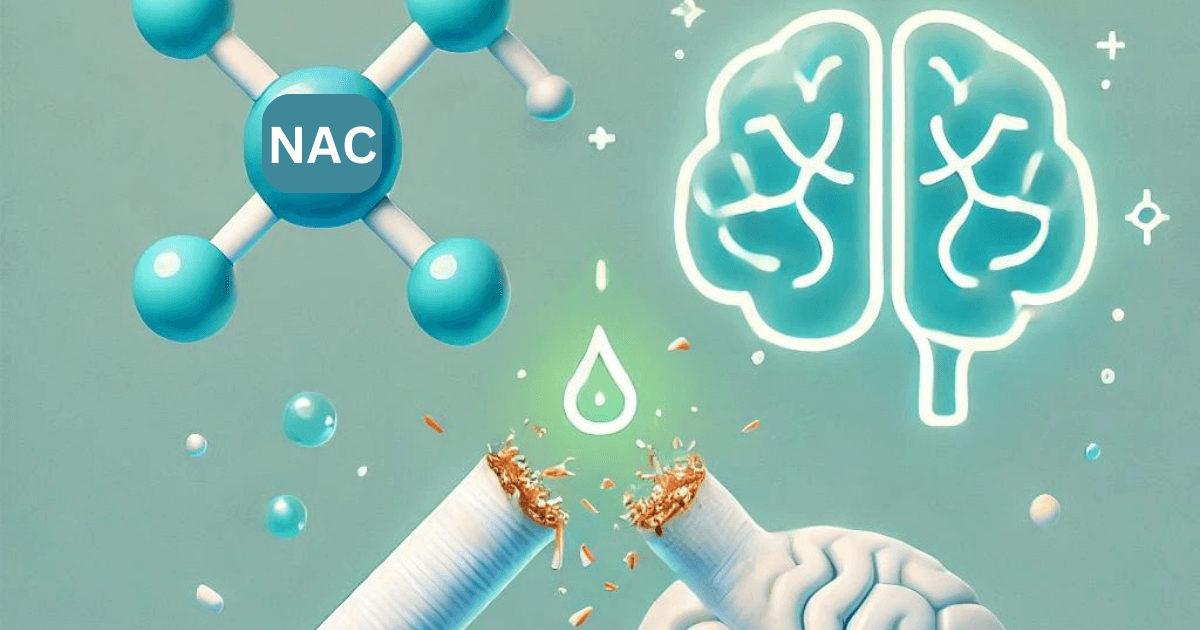Smoking is a health villain. A staggering 1.3 billion people worldwide puff away on tobacco products, despite the well-known risks of cancer, heart disease, and quite a big list of other health problems.
Let’s face it, quitting smoking feels like a battle against a clingy ex. You know it’s bad for you, everyone knows it’s bad for you, yet breaking free is like trying to untangle Diwali lights.
But fear not, fellow healthcare warriors! Innovation is on our side. Enter cysteine, the protein building block, and its superstar derivative, N-acetylcysteine (NAC). Think of it as a brand new weapon in our anti-smoking arsenal.
Now, cysteine itself isn’t the headline act. It’s NAC, the modified version, that’s turning heads in the smoking cessation game. Here’s why:
Cravings? NAC Says “Chill Out!”
Imagine cravings like a radio blasting heavy metal. NAC might be the volume knob, turning down the intensity of those urges. Studies suggest it helps regulate glutamate, a brain chemical that cranks up cravings and withdrawal symptoms.
Restoring Balance
The Antidote to Smoking Havoc. Smoking disrupts the delicate chemistry in your brain. NAC, with its antioxidant superpowers, might help restore that balance, making you feel more centered and less likely to reach for a smoke.
Early Signs are Promising
Research shows promise, with some studies suggesting higher quit rates for those using NAC compared to a placebo. Plus, it’s generally well-tolerated, with minimal side effects like mild tummy troubles.
A Powerful Ally, Not a Magic Bullet
While more research is needed to solidify its effectiveness, NAC appears to be a valuable tool in the fight against smoking. Remember, it’s not a magic bullet, but when combined with other strategies like behavioral support, it can be a game-changer for patients determined to quit.
The good news? A recent randomized, placebo-controlled trial conducted in Indonesia (A Randomized, Placebo-Controlled Trial in Indonesia) showed promising results.According to a randomized trial, taking 2.4 g/day of NAC for four weeks (compared to a placebo) resulted in a significant reduction in the number of cigarettes smoked by participants. NAC, along with behavioral support, proved to be effective and well-tolerated. Further studies are underway to confirm the long-term success rates, but the initial findings are encouraging.
It’s important to note that N-acetylcysteine (NAC) is not currently approved by the Central Drugs Standard Control Organization (CDSCO) in India for smoking cessation. While research is promising, further studies and regulatory approval are needed before it can be widely recommended for this purpose in India.
The Takeaway: Empowering Patients to Breathe Easy
The next time a patient walks in looking to quit smoking, consider adding NAC to their personalized quit plan. Together, we can empower them to break free from the clutches of tobacco and breathe a whole lot easier. Remember, quitting smoking is a journey, not a destination. NAC can be a valuable tool on that journey, helping patients overcome cravings, manage withdrawal symptoms, and ultimately, achieve a smoke-free future. So, let’s ditch the struggle and embrace the power of science to help our patients stub out the struggle for good!
Author’s biography
Dr. Ayushi Gupta, BDS, is a skilled General Dental Surgeon in Indore. She excels in diagnosing and treating diverse dental conditions, handling dental emergencies and managing complex oral disease treatment plans.

